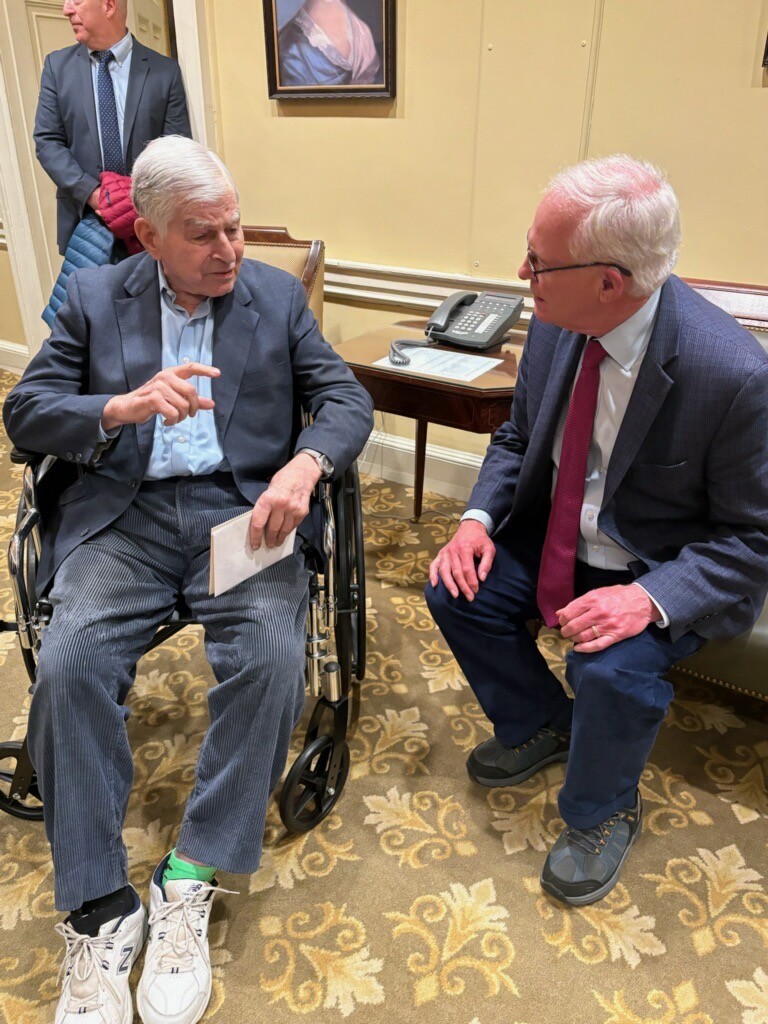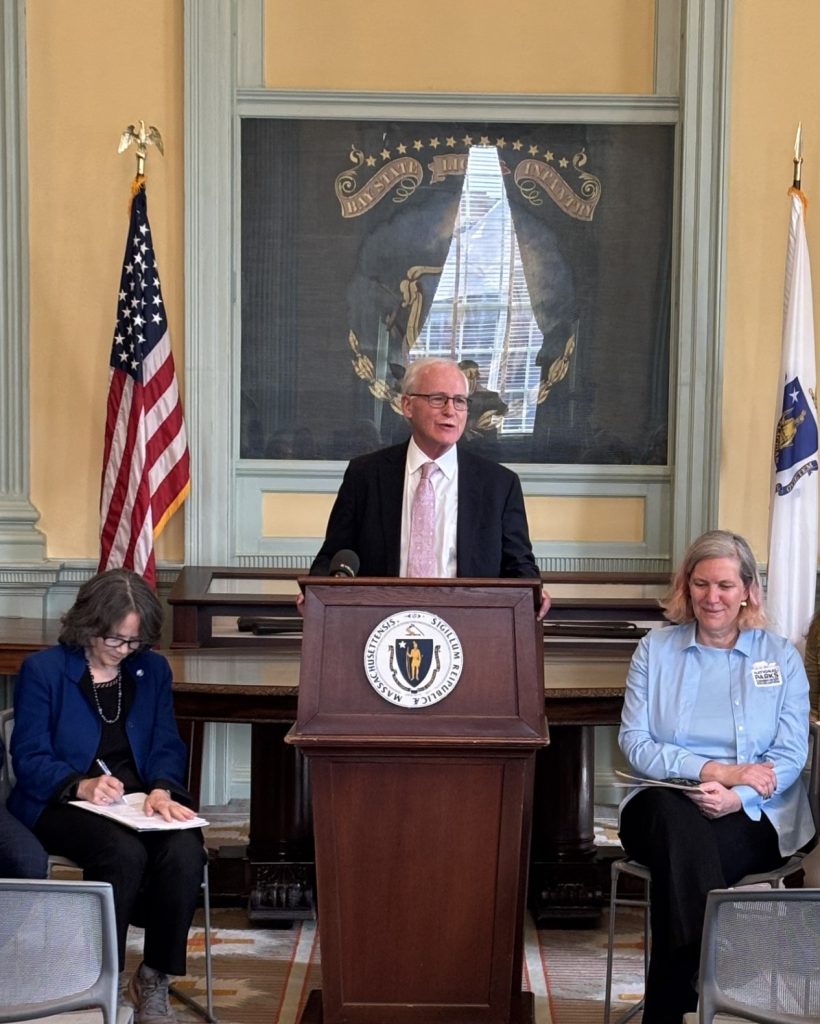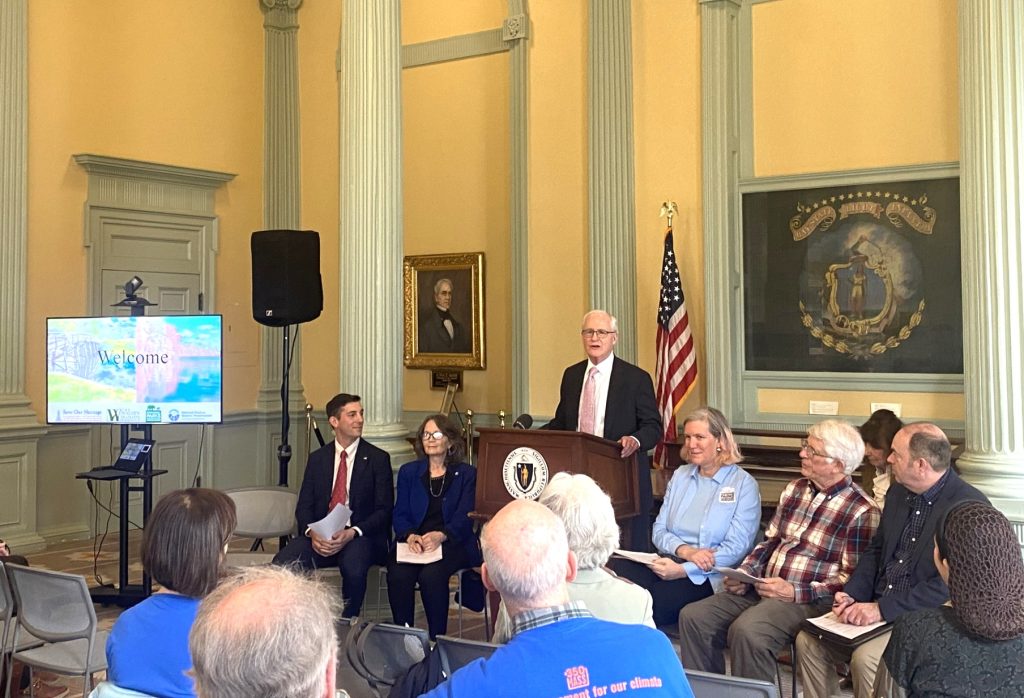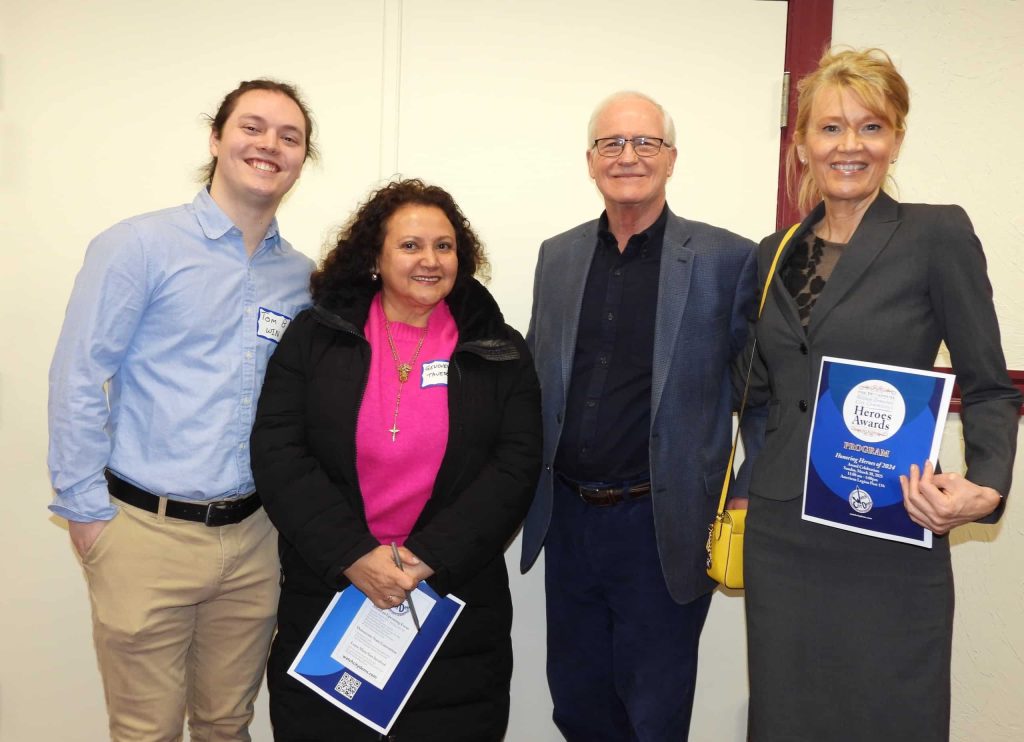Pleased to have offered opening remarks this past weekend at the start of the annual 5K race sponsored by CAAL, the Chinese American Association of Lexington. Participation was high. Sustainability was the theme. I sounded the starting horn. Happy to have received advice on proper technique from former Economic Development Secretary Yvonne Hao and CAAL executive Hua Wang.












